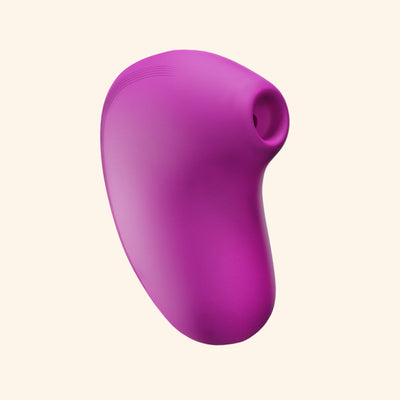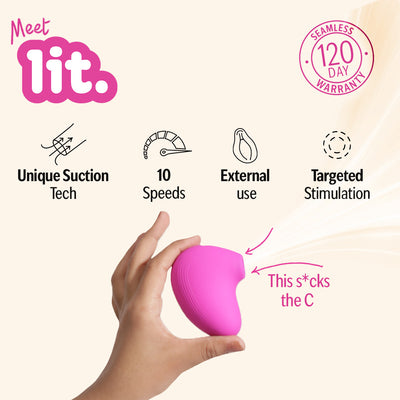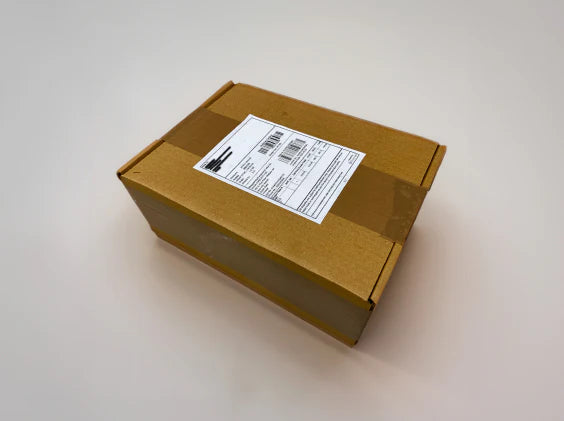Your cart is currently empty

When we talk about ADHD, it’s usually in the context of school struggles, office productivity hacks, or that endless pile of unfinished to-do lists. But here’s the thing nobody tells you: ADHD doesn’t stop at your desk. It follows you into the bedroom.
ADHD and sex are connected in messy, fascinating ways. Your sex drive might swing from “three times a day, please” to “don’t even look at me” without warning. Intimacy might feel like the most grounding experience, or like your brain just opened 42 browser tabs mid-makeout. And because sex is still such a hush-hush topic in India, very few people ever connect the dots.

Let’s break the silence.
ADHD and Sexuality
ADHD and sexuality go way beyond the stereotype of being “distracted in bed.” A 2020 systematic review found that adults with ADHD report both more sexual desire and more sexual dysfunction compared to people without ADHD. Translation? ADHDers often bring creativity, intensity, and passion into intimacy, but may also face challenges like inconsistent arousal or orgasm issues.
In India, the challenge is doubled. ADHD is often underdiagnosed in women, which means struggles in intimacy get dismissed as “mood swings” or “not adjusting enough” in relationships. Add in the silence around sex (education) here, and most women don’t even realize what they’re experiencing has a name.

ADHD and Sex Drive
When it comes to ADHD and sex drive, “average” is rare. Some people experience ADHD and a high sex drive, such as hypersexual fantasies, novelty-seeking, and frequent self-pleasure. Others swing in the opposite direction, struggling with low libido or long stretches of disinterest.
A European Psychiatry study found that adults with ADHD reported significantly more hypersexual behaviors than those without ADHD. That can mean adventurous desires, more porn use, or just craving variety in bed.
Medication adds another twist. For some, stimulants like methylphenidate can increase libido; for others, they cause sexual dysfunction. If you’ve ever thought, “Wow, my sex drive totally changed after starting meds,” you’re not imagining it. It’s worth bringing up with your doctor.

ADHD Affecting Sex and Intimacy
ADHD affecting sex goes way beyond desire levels. It’s also about presence. Ever zoned out mid-makeout because your brain wandered to “Did I leave the geyser on?” Or rushed into intimacy before you were emotionally ready because of impulsivity? Yep, that’s ADHD showing up in bed.
One Dutch study found that 43% of women and 39% of men with ADHD reported sexual dysfunctions, including orgasm difficulties, low arousal, or unsatisfying sex. Another large community study linked ADHD with more sexual distress overall.
For many, sex feels like a rollercoaster—intense highs followed by disconnection or shame. In India, that shame gets amplified by cultural silence: women aren’t supposed to talk about libido swings, let alone admit to hypersexuality.
Impact on Intimate Relationships
ADHD and sex ripple into relationships in complicated ways. Forgotten anniversaries, mismatched libido, or zoning out during intimacy can leave partners feeling confused or unwanted. On the flip side, ADHD traits, such as curiosity, playfulness, and passion, can make sex feel adventurous and full of exploration.
Research also shows that young women with ADHD are more likely to engage in sexual risk-taking and regretful encounters. In a country like ours, where casual sex already comes with judgment, this can create guilt and secrecy rather than open conversations.
The real takeaway here is that the goal isn’t to “fix” ADHD. It’s to understand how it shows up in intimacy and navigate it together.
Strategies for Healthy Intimacy
Okay, so what actually helps? A few things:
-
Talk about it openly. “Hey, my brain gets distracted during sex—if I lose focus, it’s not about you.” Simple honesty can prevent misunderstandings.
-
Practice mindfulness. Breathwork, focusing on your partner’s touch, or even grounding cues (like scented candles or music) can bring your mind back to the moment.
-
Use tools & aids. Vibrators, lubricants, and other toys can reduce stress and help you stay connected. For instance, using a toy during penetrative sex can keep sensations strong enough to stop your brain from wandering.
-
Track medication effects. If your meds are messing with your libido, don’t just suffer—talk to your doctor. Small adjustments can make a huge difference.
-
Seek support. Sex therapy, ADHD coaching, or even couples therapy can give you practical strategies to balance passion and connection.

Experiences of Real People
ADHDers often describe their sex lives as “all or nothing.” Some feel hyperfocused during intimacy—completely immersed and exhilarated. Others describe the opposite: getting distracted, disconnected, or feeling like sex is another chore on the list.
One person on r/ADHD put it: “ADHD makes sex amazing… until it doesn’t.”
Another joked: “My libido is stuck at 11. Three times a day or I lose it. Feels like withdrawal.”
These swings are common. Talking about them, whether with your partner or in safe spaces online, helps strip away shame.
The Importance of Communication with Your Sexual Partners
At the end of the day, the most powerful tool for navigating ADHD and sex is communication. Whether it’s:
-
slowing down
-
experimenting with toys and lube
-
or just naming what’s happening in the moment
—honesty builds trust.
If you can say, “Sometimes my sex drive is unpredictable, but I want us to figure it out together,” you turn what feels like a weakness into a shared adventure.
With the right conversations, ADHD a sex life doesn’t mean less intimacy. It can mean more creativity, more experimentation, and deeper connection.
Conclusion
ADHD and sexuality aren’t about dysfunction, they’re about difference. Yes, ADHD can complicate sex drive, focus, and intimacy. But it can also make intimacy passionate, playful, and memorable in ways “neurotypical sex” isn’t.
With awareness, communication, and a little help from tools (yes, we mean toys and lube), ADHD and sex can feel less like chaos and more like an opportunity to reimagine pleasure.
To support intimacy and manage ADHD-related challenges, many find that incorporating sex toys can introduce novelty and focused sensation during intimate moments. Using lube alongside these toys can further enhance comfort and pleasure, making it easier to maintain connection and enjoy sexual experiences










